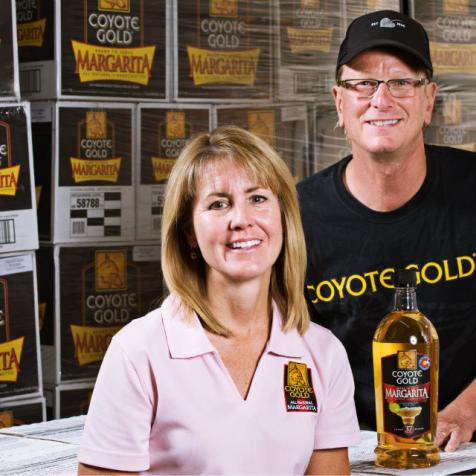
Company Details
Location
Fort Collins, Colorado
Founded
2005
Ownership Type
Private
Employees
5
Products
Spirits
Co-founders Mo Schaffer and Randy Zwetzig describe their margarita manufacturer as an accidental business.
The partners, both engineers, were on a quest to find the perfect margarita. They tried different bottled margaritas and concoctions from countless restaurants before determining that the only way they would find perfection was by blending their own beverage from the finest natural ingredients they could find.
"We made them for our friends and family at first," Zwetzig says. "Then word got out, and people started asking for them for various parties, graduations and wedding receptions."

When nonprofits and family foundations started asking Schaffer and Zwetzig to provide margaritas for their fundraisers, the friends started thinking about starting a business, which meant figuring out how to produce the beverage in mass quantities. "We'd only made margaritas a drink at a time or a bottle at a time," Zwetzig says.
Today the company makes three varieties in 1.75-liter bottles -- original, jalapeno, and pineapple coconut -- as well as frozen margaritas sold in three-ounce tubes. As was the case in Schaffer and Zwetzig's amateur days, all ingredients are natural: There's premium tequila, handcrafted orange liqueur, fruit juices, and Rocky Mountain water, but not a drop of high-fructose corn syrup or artificial colors or flavors.
Because there are so many well-established margarita brands available, getting the Coyote Gold onto store shelves also has been a formidable task. Because the first batch of margaritas wasn't released until mid-January -- not exactly the season for the drink -- the partners were worried that it wouldn't sell.

Those fears proved unfounded. The first batch of 2,000 bottles on the shelves of 10 stores in Colorado sold out in about three weeks. "We had nothing in the pipeline, and stores were calling us and saying that people wanted this product," Schaffer says.
So they made another 3,000 bottles of margaritas they were able to distribute by March. "We thought the first batch was a fluke," Schaffer says. "But then the next one sold out in four and a half weeks. It wasn't until the fall that we got a stable supply coming from our manufacturer and we finally started to meet the demand."
Their early success with charities led Coyote Gold to create its Margarita with a Mission program, which gives away drinks at fundraising events. Since the program started a few years ago, Coyote Gold has generated more than $700,000 for charities. "Nonprofits and charities are begging people for donations at events," Zwetzig says. "We turn the table around on that. We call them and say we want to give you margaritas. There's usually stunned silence on the other end of the phone."

Challenges: Navigating the bureaucracy of liquor laws and licensing has been the biggest challenge for Coyote Gold. "We're electrical engineers," Schaffer says. "Once we decided to get serious about this, we had no background from a regulatory standpoint. I don't know how we would have done it without the internet."
Opportunities: At one point, Coyote Gold was sold in 22 states, but Schaffer and Zwetzig determined that the biggest opportunity for the company is in Colorado, so they scaled back national distribution. Today, in addition to Colorado, Coyote Gold is sold in Tennessee and Missouri.
"When we do events here in the Fort Collins area, about 50 percent of the people have heard of us or tasted us," Zwetzig says. "That's a pretty good number, but until we're at 100 percent, we're not saturated. In Fort Collins, we outsell big brand margaritas by 5-to-1, according to the liquor stores. We had to make a strategic decision to invest our time and money marketing in Colorado."
Needs: More time, more space, and a reliable labeling machine. "Equipment likes to go on the blink," Schaffer says. "One of the biggest challenges with manufacturing is that if you have a problem, it needs to be fixed now. If your line is down, you're not producing product."
The company's growth makes keeping equipment in top shape more critical today than it was when it started. "We do close to 3,000 bottles a week now," Zwetzig says. "As we look back, we've come a long way from that first production run."

